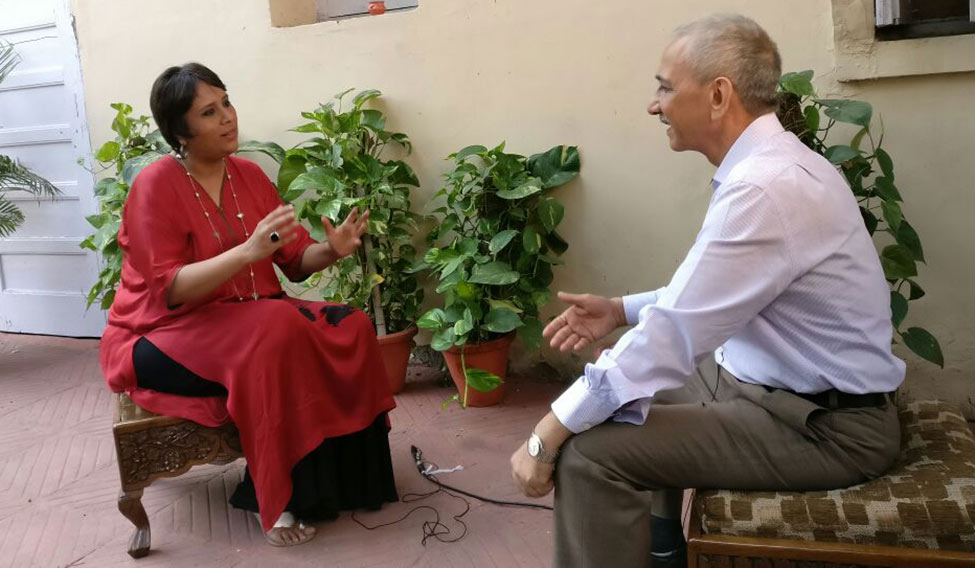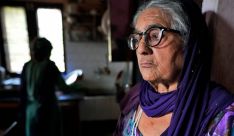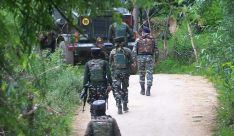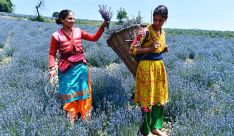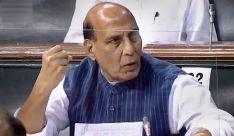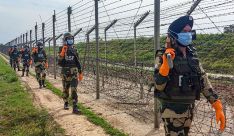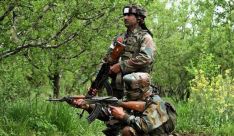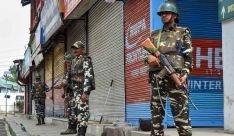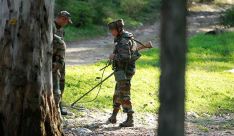Do you feel you have one of the toughest jobs in the country right now?
Definitely. The Kashmir problem is the most difficult job, most difficult problem for the country.
What do you see as your biggest challenge?
The immediate challenge is restoring peace in Kashmir and bringing back youth who are moving away and getting disillusioned.
There have been interlocutors before. There was the K.C. Pant committee, there was the committee headed by Radha Kumar and Dilip Padgaonkar and M.M. Ansari. Those reports never really saw the light of day, they weren’t even tabled in Parliament. How will you convey a message that this time the government is serious about this process?
I will talk to everybody, and I hope that I will be able to convince everybody. As far as the (interlocutor’s) report is concerned, there must be certain reasons why the government could not place it in Parliament. For that, this government cannot be blamed. So there must be some reason, and I am not in a position to comment on that.
You have been asked repeatedly—who are these stakeholders? Because you have said that you will talk to all stakeholders. You said you will talk to every Indian citizen who lives in Jammu and Kashmir, and that, you said, includes the Hurriyat Conference because they are Indian passport holders, they are Indian citizens. Is that a fair surmise that the Hurriyat is among the stakeholders you will reach out to?
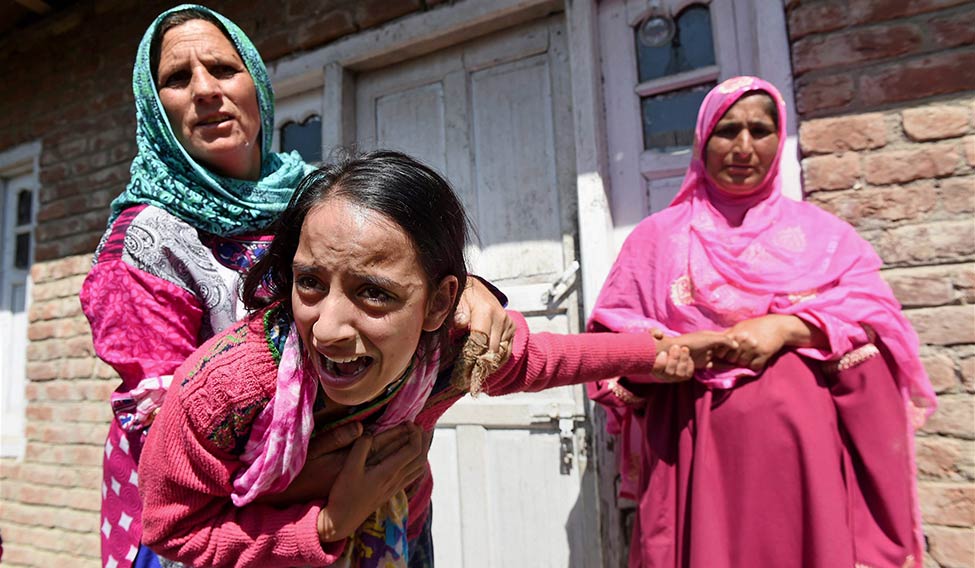 Agony of WWloss: A young girl crying during the funeral of a BSF jawan from Bandipora in north Kashmir. He was killed by terrorists in September | PTI
Agony of WWloss: A young girl crying during the funeral of a BSF jawan from Bandipora in north Kashmir. He was killed by terrorists in September | PTI
Definitely. You see, I have continuously been maintaining that all Indians living in Kashmir are stakeholders. They all have a stake in the peace in Kashmir. So, Hurriyat automatically comes in that. But whether I will talk or not will depend on the situation there, it will depend on the response from them.
But of course they fall within the list of Indian citizens who live in Jammu and Kashmir, and to that extent, even the agenda of the alliance between the Peoples Democratic Party and the BJP lists them as stakeholders.
Yeah, I have mentioned that any Indian is a stakeholder.
Including the Hurriyat?
Automatically, they are also Indians.
One of the challenges for you, as a veteran of Kashmir, is that people start asking, what is the framework of this dialogue? Vajpayee handled it by saying, “Insaniyat ke daayre mein jo kuch bhi mumkin ho, woh hum karenge (we will do everything within the realm of humanity)”. Now, obviously the Constitution of India is a framework. But, apart from that, what is the mandate given to you to set the framework?
I have not been given any mandate. Mandate is—totally openminded. I can talk to anybody or suggest anything.
And no boundaries?
No boundaries or limitations from the government.
Have you been told whom to talk to and whom not to talk to?
Not at all. I have been given a free hand to talk to anybody.
But, obviously within the constitutional framework?
Of course, no authority has the right to talk anything outside the Constitution.
You have dealt with radical Islam. In fact, you came up with some innovative solutions when you were dealing with Islamic State recruiting young people in Kerala. I remember one police officer saying that, pehle azadi hoti thi [earlier there was azadi], Islam was a subset of it. Now azadi has become a subset of Islam. How will you deal with this challenge of radicalisation?
You are right. Radicalisation has emerged as a much bigger challenge than the azadi issue. And, as director of the Intelligence Bureau, I was noticing this. Of course, in many other parts of the country, but more so in Kashmir.
How will you deal with it?
I will go talk to people, convince, talk to the parents, talk to the teachers [and tell them that] this is going to destroy what is called Kashmiriyat. So, youth will have to be taken out from all these radical thoughts, which are coming from across the border.
In 2015, the Jammu and Kashmir police placed a report, where they said for the first time, in ten years, local militants had outnumbered foreign terrorists. In fact, local militants made up 62 per cent of the militants, many of them educated, toppers even. How will you deal with local militants?
I think that if the overall situation improves in Kashmir, if the youth start seeing reason (that militancy is not the way to achieve what they want to achieve), then automatically they will stop going towards militancy. Definitely, local youth joining militancy is a big concern for everybody, but if we are able to raise the hopes of the youth, if they feel that they have a stake in peace, a stake in the Indian nation, then automatically they will leave that path.
Some people said that there should have been a political envoy and that the people won’t talk to a police officer. I disagree with that because all backchannels have been run by the IB or the R&AW in Kashmir. How do you respond to people who say, police officer se nahi baat karenge log [people won’t talk to a police officer]?
I will not like to comment on this (smiles). Only time will tell.
There is a lot of pressure on you. There are a lot of expectations. Every night there will be media debates—was this a success or failure? Was it a U-turn? First, to the criticism that the Modi government has U-turned from hardline to soft, how do you respond?
In the course of history, there is nothing like a U-turn. The government responds depending on the situation at any place. So, if Burhan Wani was killed and immediately some interlocutor was appointed, that would have also been criticised. A government responds depending on the situation. The government has thought this is the correct time to initiate dialogue.
Has the media, my fraternity, become part of the problem instead of part of the solution?
I will only say that the media has got a huge responsibility, a national responsibility, and they should play a constructive role. They should highlight issues and fulfil their responsibility by not creating further unrest in Kashmir.
You have been described as a dove in an establishment of hawks. Do you see yourself as a dove?
Let me see, let me see (laughs). But I would definitely like to meet Kashmiris with all compassion.
What about the other peace talks you are involved in, in the northeast? You have been involved in Assam, in Manipur. You have played a critical role there. There are still ongoing talks. What happens to those?
Even yesterday I was meeting the Manipuri people. Let me see, the government will decide.
One message for the people of Jammu and Kashmir.
I will request all the youth to see this as a very good opportunity, to see reason and leave the path of violence.




